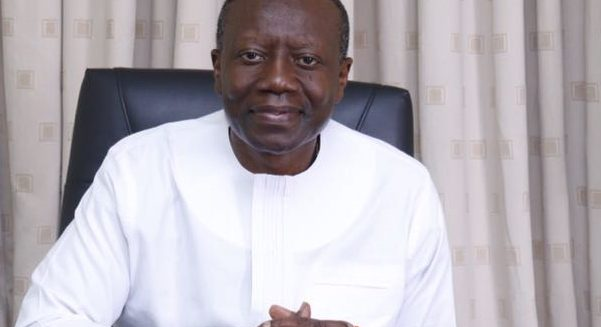
What the budget says about sanitation and matters arising
The 2018 budget statement presented to Parliament last Wednesday made reference to sanitation.
Advertisement
In the presentation, the Minister of Finance, Mr Ken Ofori-Atta, said the Ministry of Sanitation and Water Resources would provide 200,000 household toilets and 20,000 Institutional latrines to selected communities next year under the ‘Toilet for All’ agenda.He also said, “In 2018, the ministry will continue the rollout and implementation of the total sanitation campaign to make Accra and all regional capitals clean.”
He further indicated that six unauthorised dumpsites were evacuated in the Accra Metropolis this year while plans for solid and liquid waste management were developed and added that in 2018, the ministry would acquire and develop material recovery sites such as waste transfer stations and final disposal sites in every region to ensure the sorting and temporary holding of solid waste prior to treatment at the waste processing plants.
The specifics of the budget statement on sanitation are yet to be known. Possibly, these would come out during the general debate.
Suffice it to say that this country has some distance to travel in tackling the poor sanitation that confronts us and the government needs to put in a lot of resources to arrive at the set goals.
Ghana is a signatory to the Sustainable Development Goals (SDGs) and is, therefore, obliged to work at achieving the goals.
An estimated 1.3 million households in the country are without toilets and the 200,000 promised by the government, although cannot fully address the challenge, will still go a long way to assuage the suffering of many people.
Open defecation
The new SDGs call for an end to open defecation by 2030, which means the nation has 13 more years to put an end to the practice.
But the question is: How ready are we as a nation to meet this goal?
In July this year, the WHO/UNICEF Joint Monitoring Programme report,”Programme on Drinking Water, Sanitation and Hygiene 2017” gave an update on the first assessment of the SDGs and concluded that too many people still lacked access to drinking water and sanitation.
The report said in part that in 2015, 892 million people globally practised open defecation.
Ghana has developed substantial strategies and laws on sanitation but the challenges in translating these into action remain enormous.
As a result, many fear achieving an open defecation free society is a remote possibility.
In spite of being a lower middle-income country, Ghana is placed in an unenviable second position in open defecation in Africa with 19 per cent of the population engaged in the practice.
In terms of economic damage, it causes the nation a whopping $79 million annually.
For many of our people who have lived with open defecation for years, they see it as a normal thing no matter the education that comes with the dangers of the practice.
Nonetheless, all is not lost and the government, Metropolitan, Municipal and District Assemblies (MMDAs) can do more to change the situation.
Behavioural change is also a key aspect of the whole journey
Recent media reports that 10 communities in the Saboba area of the Northern Region have been declared open defecation free give indication that with the right strategies, the fight against the problem can be won.
Dumpsites
The finance minister again did not mention the six unauthorised dumpsites in Accra that were evacuated this year, but it is good news that such illegal sites were not allowed to remain.
It is not only in Accra that illegal dumpsites exist. In many other parts of the country, such despicable sites have remained in place with all the attendant consequences.
Again, the promise to build final disposal sites in every region is welcome news. But in this country, we have fine plans and ideas but putting them into implementation is the problem.
But we need to re-focus on waste management. Solid waste has for a long time been a huge load which the nation finds difficult to carry.
The MMDAs, especially the metropolises, find it difficult to fund waste disposal sites and it is important we shift focus by making waste a useful resource.
This is a resource that can be processed to generate revenue for the nation and create employment for millions of people.
This budget alone cannot solve our sanitation challenges to ensure that we get to the promised land. There is, therefore, the need for the removal of all barriers to sanitation and hygiene.



